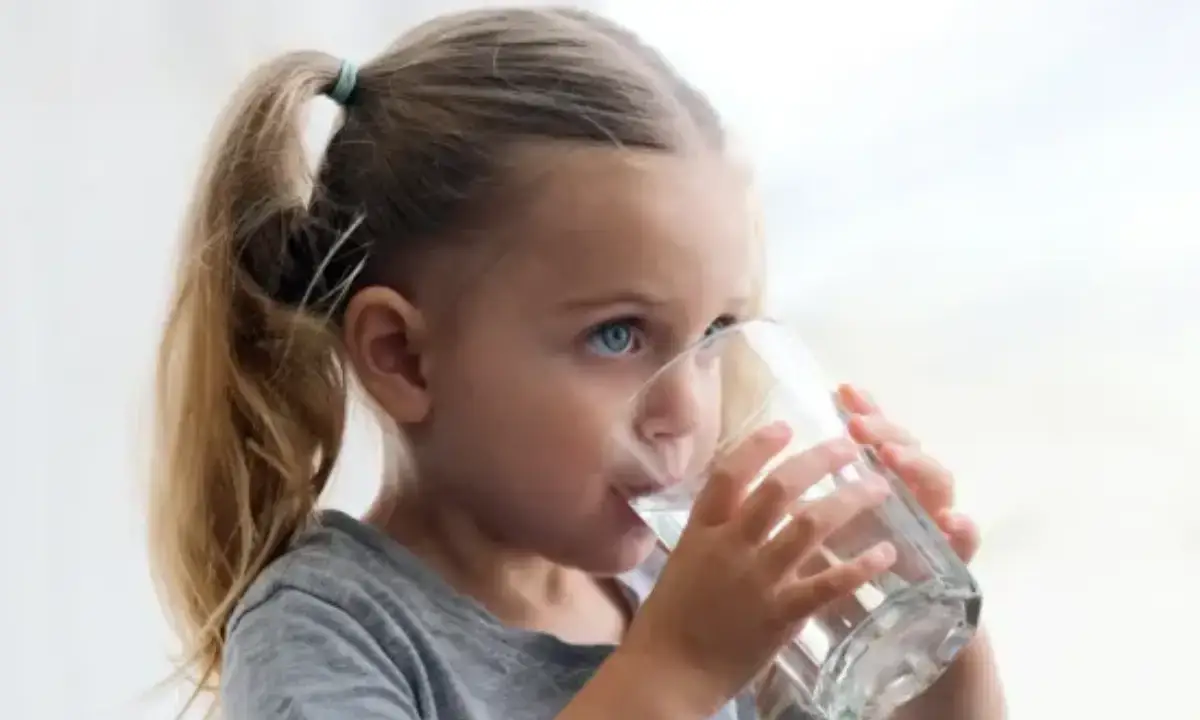

Hydration for children is an important subject. Many people may not be aware that children are more susceptible to dehydration than adults.
Children have a higher requirement of water each day than adults. They are also less tolerant of heat, which leaves them vulnerable to dehydration in hot weather and when exercising. Therefore it’s important that they are drinking enough water, good hydration for children is paramount to enable their bodies and minds to function adequately.
The European Food Safety Authority (EFSA) recommends that children drink at least 6 to 8 glasses of fluid a day (portion size of around 250-300ml). However, this is age dependent, with younger children requiring a smaller porter size (120-150ml). This is on the assumption that they are also getting between 20-30% from the food that they eat. You may be wondering, how much water should children drink in litres? The European Food Safety Authority recommends:
- 1.1 to 1.3 litres of fluid per day 4-8-year-old boys and girls
- 1.3 to 1.5 litres of fluid per day for 9-13-year-old girls
- 1.5 to1.7 litres of fluid per day 9-13-year-old boys
Encouraging children to drink
Children may not remember to drink water or fluids by themselves, so it is important for adults to provide ways to encourage a regular intake of fluids.
Having a special refillable spill-proof bottle is a great way to urge children to drink whilst out and about and certainly during and after exercise. Providing drinks and glasses of water at meal and break times will also remind children that they need to hydrate. Ice lollies made from 100% juice are also a great way to hydrate your child (in moderation though, as even when iced, pure fruit juice is high in sugar). Foods that are high in water content such as apples, celery, strawberries, melons, broccoli, tomatoes, iceberg lettuce etc also help to hydrate.
The best drink options for children
Of course, water is the best and most healthy option.
Drinking plenty of water means there is no risk of tooth decay, weight gain, or serious diseases, such as type 2 diabetes. Milk is a good option as it contains many nutrients including calcium which is good for teeth and bones. Fruit and vegetable juices made from 100% produce are not only delicious and highly nutritious but will also help to hydrate. However, beware of too much fruit juice as this can be high in calories due to the sugar content which not only contributes to tooth decay but to obesity too.
Signs of dehydration in young children and babies
Dehydration occurs when the body does not have sufficient water and fluids function normally. If the fluids lost are not replaced, then the body will become dehydrated. Usually, by the time we are thirsty, we are already mildly dehydrated. There are signs of dehydration in children that adults should look out for.
Dehydration symptoms to look out for:
- Dark-coloured urine or no urine output for 4-6 hours
- Crying without tears
- Sunken eyes
- Dry mouth with dry or cracked lips
- Lethargy, weak and limp
- Irritable and crying a lot
- Abdominal pain
- Sunken soft spot on the top of a baby’s head (the fontanel)
If you think that your child is dehydrated, then it is vital that you give extra fluids in frequent small sips.
A spoon can help rehydrate smaller children as they can steadily sip and swallow fluid from the spoon. If your child has lost too much fluid through vomiting for diarrhoea, it is essential that the sugar, salts, and minerals lost are put back as quickly as possible. Rehydration powders can be bought from the chemist and are dissolved in water which your child can slowly sip. For more information on dehydration in children click here
The message of good hydration for children is paramount. Teaching children to drink water as a life skill will help them to live a healthy adult life. Discover our range of water solutions for schools here.
